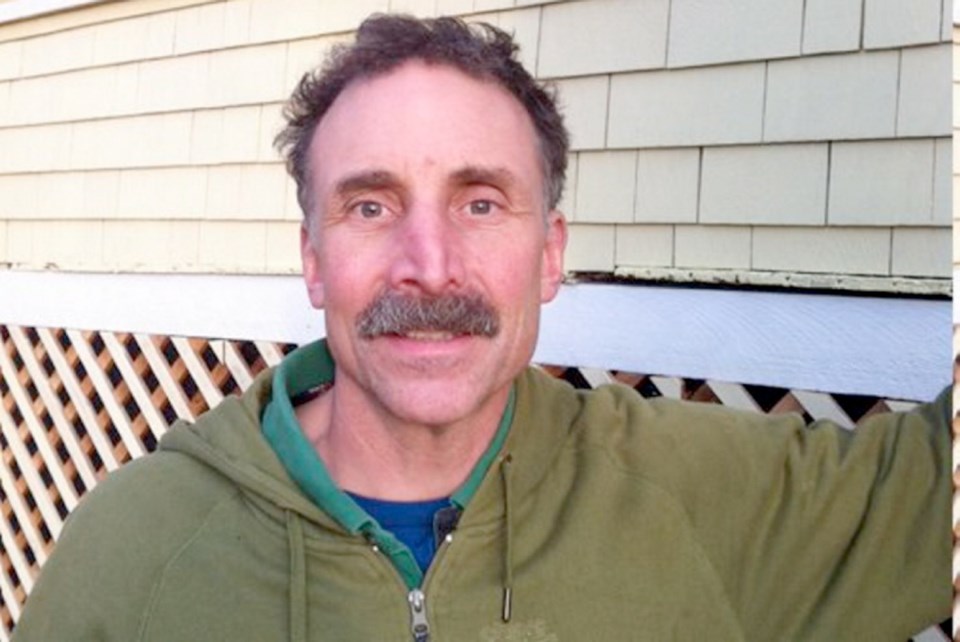A proposed $7.5 million settlement has been reached in a class-action lawsuit launched by a Cowichan emergency physician for treatment fees denied by the province to doctors who cared for patients not covered by the B.C. Medical Services Plan.
Dr. James Halvorson has fought for more than 18 years, making scores of trips to the Lower Mainland, sometimes for days, to keep the issue alive with the legal team handling the case.
“I’m very pleased with the co-operative approach the government is taking in getting this thing wrapped up,” Halvorson, 57, said Friday. “It was delayed for an inordinate amount of time.”
Doctors’ bills submitted to the B.C. Medical Services Commission were denied for patients who were in arrears with their MSP premiums, had never enrolled in the plan or were not residents of B.C., said Arthur Grant, one of a team of Vancouver-based lawyers who worked on the case.
The notice of proposed settlement applies to any B.C. doctor who billed on a fee-for-service basis from July 23, 1992 to April 30, 1996.
“It’s been a long hard battle, for Dr. Halvorson and for us,” Grant said. “I want to emphasize he has stood by us and the case throughout the whole path — not an easy thing.
“I’m really glad that we’re bringing this to an end and that the doctors are going to get some recognition of their work.”
The class action was certified against the commission and the B.C. Attorney General on behalf of the Ministry of Health on July 12, 2012, requesting compensation for “unjust enrichment” by the province in not paying doctors for their work.
Lawyers for both sides entered into the settlement agreement subject to the approval by B.C. Supreme Court Justice Elaine Adair on July 11. She will decide whether the proposal is “fair, reasonable” and in the best interests of the doctors. If approved, the $7.5 million settlement will be binding on doctors who apply as “full and final satisfaction” of the class members’ claims.
“This is a settlement, not an admission of liability,” Grant said. However, he views it a “an important recognition” of doctors’ efforts on behalf of people who did not have health care coverage.
Most doctors encountered some rejected claims as a result of B.C. policies at the time, Grant said. But the rate was far higher for emergency-room doctors and plastic surgeons — presumably performing emergency treatment — who had no way of checking whether the people they treated had MSP coverage, he added.
If the proposal goes through, the amount of compensation MDs will get will depend on how many doctors apply.
“We are really hopeful that the message gets out to many doctors — many of whom are retired now,” Grant said. “The whole idea here is to acknowledge the contribution that physicians made during that time period to British Columbia’s medicare system, without compensation.”
The Ministry of Health said in a statement that since June 30, 1996, when B.C. changed its Medicare Protection Act, MSP became mandatory for residents. “A person can no longer have their MSP coverage cancelled because their premiums are in arrears. … So, in any situation, a person with MSP coverage would be treated.”
In emergencies, all people are treated regardless of their status, for example non-residents of B.C., or their ability to pay. In non-emergency situations, non-residents are advised how much treatment will cost and make an informed decision on whether they wish to be treated or not.
The ministry said the province “strongly supports the use of alternative dispute resolution in civil cases,” noting that after mediation in late 2015, the tentative agreement to settle the claim with doctors was reached. It did not respond as to why it continued legal action for so many years before mediation.
“We’ve been in court so many times on this,” Grant said. “The first certification hearing lasted eight days, which we lost in 2000. We went to a four-day appeal and we won that in 2003 in the B.C. Court of Appeal.”
The $7.5-million proposal includes $2.5 million in legal fees for Grant and many others who worked on the case. Many documents were not available until late in the game, he said, and a lot of discoveries were made as they went along. “It’s occupied a lot of my time and a lot of other people’s time,” Grant said.
B.C. now requires all residents to enrol in the MSP. People other than seniors with adjusted net incomes above $30,000 pay full premiums of $900 per year for a single person or $1,800 for a family.
B.C. is the only province that requires people to pay premiums for medical care. Other provinces roll payments into the tax system.



